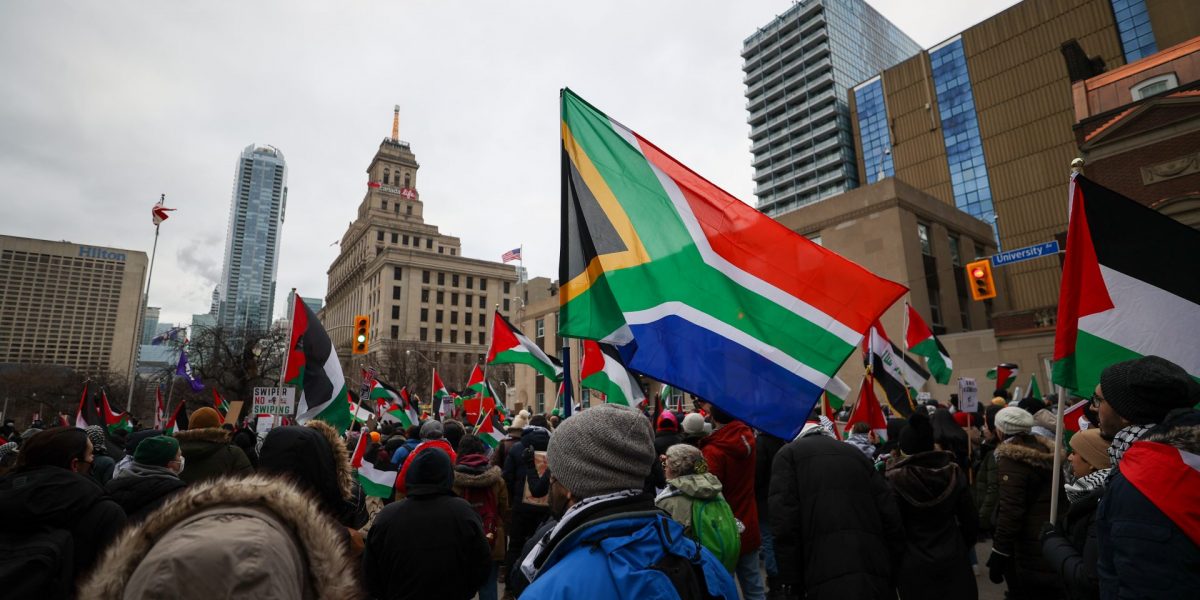“I feel like democracy is the only form of government that may work [because it] is the only form of government that allows change.” These were the sentiments of a participant in the democracy consultations hosted by SAIIA and the Embassy of Sweden (Pretoria) in March 2024 with young South Africans. They were held during a significant election year with multiple polls worldwide. From these discussions, it became clear that democracies must expect the unexpected and build resilience. Against this backdrop, and as the 2025 International Day of Democracy approaches, it is a fitting time to reflect on the state of democracy in Southern Africa.
Although in decline, democracy remains the preferred form of government in Africa, according to Afrobarometer. Signs of regression are well documented and should be acknowledged. In Southern Africa, disputed election outcomes, which often fuel civil unrest, are becoming increasingly common. This has been documented in the DRC, Mozambique, Zimbabwe and notably the Malawian court order re-run. Furthermore, democratic consolidation is challenged by shrinking civic space, contentious electoral practices and voter apathy as well as limitations on freedom of speech and assembly. These issues are worsened by income inequality, social disparities and the fact that many young people face less prosperous and less productive livelihoods due to a shortage of opportunities.
But the results of global elections and those in South Africa show that voter participation can steer countries in new directions. A global overview of elections held in 2024 reveals a significant number of countries where new leaders were elected. In Southern Africa, elections in Botswana marked the end of the ruling party’s 58-year rule. South Africa’s 2024 elections, 30-years into its democratic journey, yielded results where the ruling party went from holding a full majority to being 10 points short of the required 50% mark. This resulted in the so-called Government of National Unity, a coalition government. All parties accepted the results as legitimate and rallied behind the Independent Electoral Commission when it declared that it was free and fair. South Africa also values and understands the importance of the right to protest and freely express dissatisfaction.
However, this is not the case across Southern Africa and there is a danger when autocratic leaders exploit this culture to disrupt and dismantle the system. This was among the concerns to prolonged democratic governance identified by youth during the consultation process. Participants felt strongly that there are no workable alternatives to democracy and that it is therefore the collective responsibility of society to ensure that democratic values are upheld, that governments are held accountable, and that the voice of citizens finds expression in the actions of governments. Other threats identified during the consultations include under-governed technology spaces such as artificial intelligence, a key enabler of micro-targeting on social media; lack of meaningful inclusion of youth in decision making; and under-development and shrinking civic space that limit the ability of civil society to play an active role in democracy.
To address this, young people suggested that more should be done to govern and manage technology. They also called for investment in civil society be improved while also engaging this important sector more, and civic education programmes to be adopted at school level so that young people grow up understanding societal issues and know what to do to address them. Civil society can also benefit from deepening cooperation, especially across borders. Several countries in Southern Africa share similar issues and by working together, civil society organisations can broaden their reach and impact.
The outcomes of the youth consultations and the historical role of civil society underline that it has been a key driver of greater democratic inclusion, government accountability, and fostering dialogue on human rights and beyond. Civil society has the power to bridge divides and should continually work to highlight and strengthen democratic values. Until people see the connection between democracy and a better life, they are unlikely to fight for it – or may seek alternatives.
Africa is a young continent; yet many voters do not fully grasp their power as a constituency or the significance of combining information, voter education, and understanding how to organise and harness demographic strength. Through education and awareness, young people can realise that democracy enables their votes to shape outcomes, reflect their choices and improve their material well-being and overall quality of life. If an election yields a surprising result, it is evidence of the people’s authentic preferences. Rather than rebel against the wishes of their people, incumbents should value the authority of the polls when losing an election and, like South Africa and Botswana illustrate, accept the outcome. Elections are cyclical after all, and where one government fails, another could shine.








